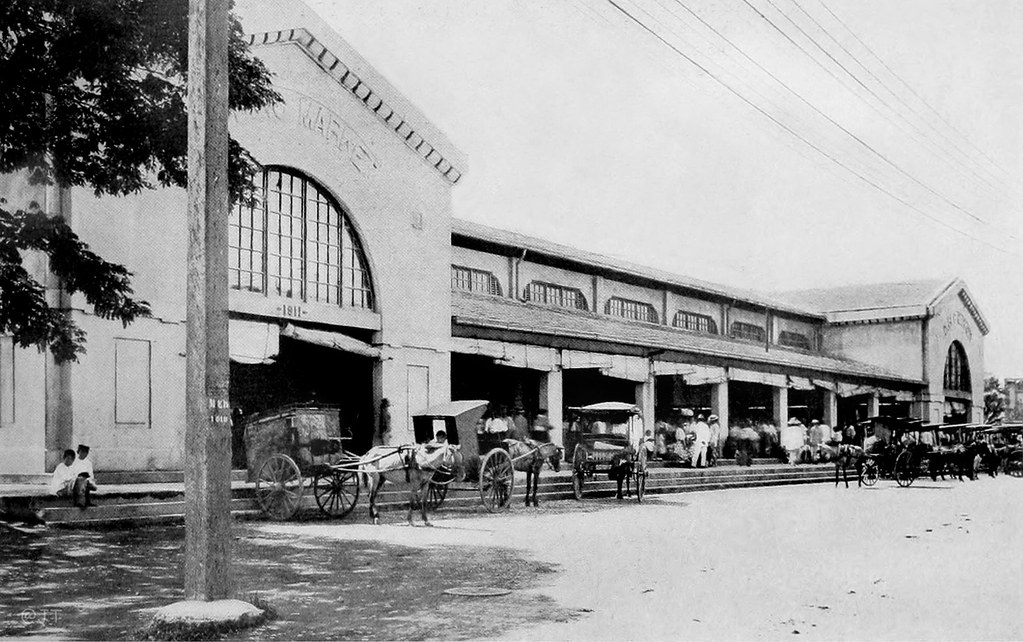 |
| Paco Public Market from 1911 (old photo) |
 |
| Paco Public Market along Estero de Paco from 1911 (old photo) |
Paco Public Market is located along the edge of Estero de Paco connected to the Pasig River.Its architectural design was made by William Parsons and was built in 1911.
It was initially planned for commerce with waste and water management as a priority.The area became a bustling center of commerce and culture.
While local fishermen brought
their days catch directly from the ocean. It is considered to be one of the oldest market structures in the Philippines.
After World War II, When the Pasig river together with the market it eventually became polluted and eventually Paco Market was neglected for years.
 |
| Paco Public Market along Estero de Paco before rehabilitation (2011) |
 |
| Paco Public Market before redeveloping project |
Trash and shanties built up along the Estero de Paco, one of the 47 esteros that feed into the Pasig, and became one of the main sources of pollution for the once-pristine river.
Paco Market, which once flagrantly dumped its trash into the esteros, has sadly come to be one of the biggest contributors to the pollution that plagues the Pasig River.
 |
| Paco Public Market along Estero de Paco after rehabilitation |
The
National Commission for Culture and the Arts (NCCA) in partnership with ABS-CBN
Foundation has launched the “Phil Art Festival/National Arts month” in line
with Paco Market’s “Livelihood though the Arts” Program.
Gina Lopez, managing director of ABS-CBN, is spearheading
the major task of cleaning the Pasig River under the Kapit Bisig Para sa Ilog
Pasic (KBIP).
 |
| Paco Public Market after redeveloping project (present photo) |
“Kapit
Bisig Para Sa Ilog Pasig” as a first step
has made the rehabilitation of Paco Market one of its flagship projects,
seeing that it is vital to urban renewal and
sustainability.
 |
| Inside Paco Public Market |
The
nearly-completed historic 100-year-old market was designed and redeveloped by
Maja Olivares-Co of SSOA (Sonia Santiago Olivares & Associates Inc.).
The
market targets five major goals: Historic preservation and green design,
commercial sustainability and stall standardization, development of an activity
center for education and cultural preservation, to provide an authentic
Filipino palutuan and to develop products from waste
The newest addition of the redevelopment is the so called “Rustan’s Wing,” the first wing that you enter from Pedro Gil St.
This new wing, donated by the Rustan Group of Companies and
dedicated to its patriarch Ambassador Bienvenido Tantoco Sr. and his late wife
Gliceria, will house one-of-a-kind merchandise including products made from
waste and recycled materials, specialty items and other special hand crafted
items that hope to cater to the tourist market as well as the local community.
Some of these handcrafted products will come from former Paco residents who
used to live along the side of Estero de Paco
that have been relocated to Calauan.
Conclusion:
The best way to preserve this historcal landmark is to maintane the consistency of
cleanliness, neatness and orderliness of the area since its structure had already been fully redeveloped.
The best way to preserve this historcal landmark is to maintane the consistency of
cleanliness, neatness and orderliness of the area since its structure had already been fully redeveloped.
